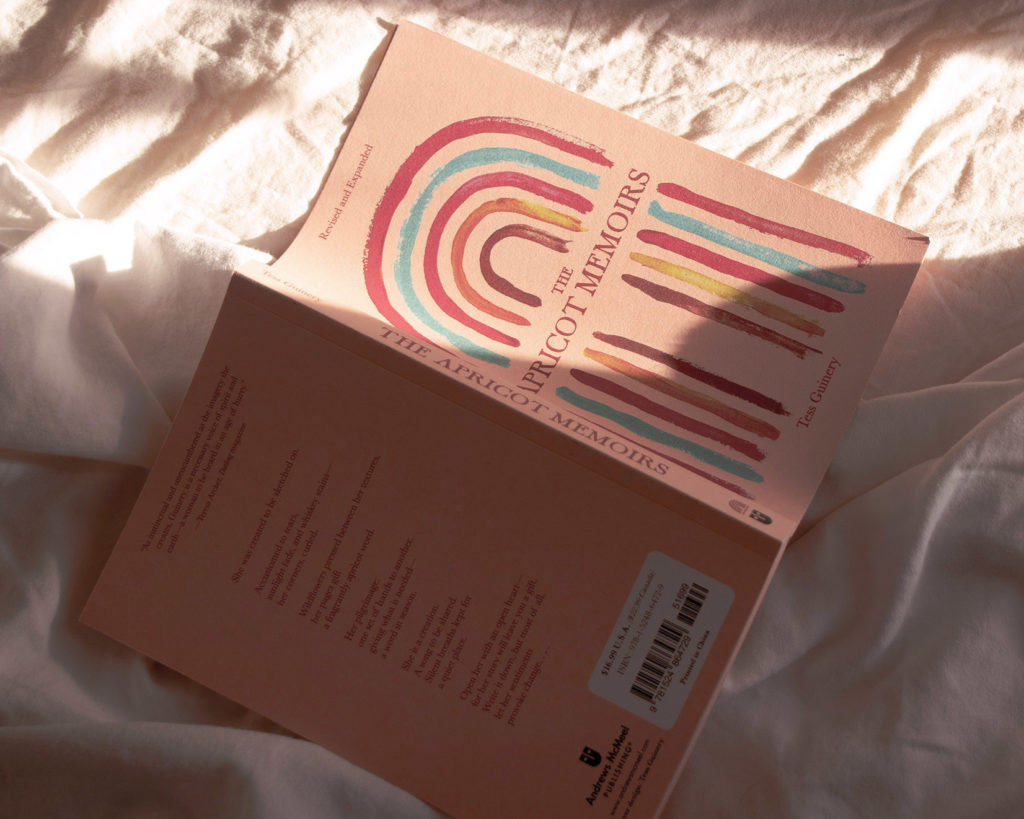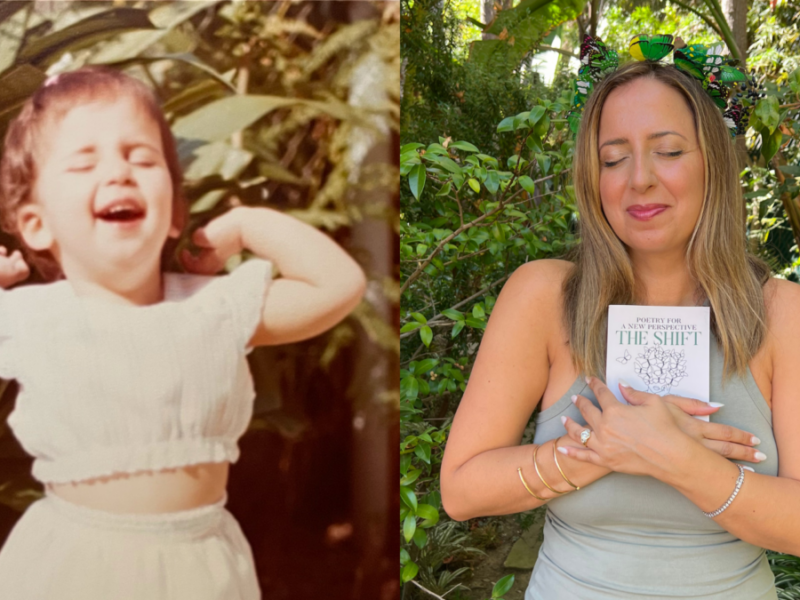The Purpose of Poetry with Tess Guinery
Tess Guinery has inspired thousands of readers, Instagram followers, and creators through her work as a multimodal artist. In addition to her background in both dance and design, Guinery released her poetry collection The Apricot Memoirs in April with Andrews McMeel Universal. A second collection, The Moonflower Monologues, will hit shelves in August. In honor of National Poetry Month, we talked with Guinery about the themes in her poetry, her creative inspiration, and—above all—the passion and purpose poetry brings to her life.

Read Poetry (RP): In what ways does poetry give you purpose?
Tess Guinery (TG): I feel that any art form I find myself in gives me a sense of exploration that facilitates a means of expression, and I truly believe with my entire heart, that we were created to create—this is something I find purpose in and poetry has been a part of this. I feel like I’m only just beginning when it comes to finding the words, but I am very much enjoying the process.
RP: What do you feel is the purpose of your poetry?
TG: I have this beautiful memory at the age of three where I remember speaking to the great, open expanses as though someone was there. I always felt like I wasn’t alone. It was as though I had this open dialogue, where even my sigh was received, but by whom? At the time, I wasn’t sure, but had a deep sense of knowing that I was being heard. The curiosity around this open dialogue has led me to the most beautiful findings, ones that have awoken my eyes to creativity and discovering beauty in the commonplace. I want to make art about this forever. My hope is to invite others to discover beauty, too.
RP: In addition to being a poet, you’re also a dancer and designer. How do these different forms of art intersect and inform each other?
TG: Dance has been an anchor in the journey of my creative expression. When I began to dabble and play with pieces of prose and poetry, I remember it very clearly feeling rhythmic. I could see the words almost twirling with a sense of movement and fullness. It’s like what I was trying to say came out like a dance, but with words. It was very childlike and imperfect, but felt necessary for me in my journey.
In studying design, I see it as being foundational for me, but was also a bit of an awakening—it gave me the tools to bring ideas to life through paint, digital, paper, textiles, photography, typography, film, and so many other means. The course I enrolled in allowed and beautifully carved out play in so many mediums and gave me a sense of freedom to explore everything and anything. I painted rainbows for days and days with my three-year-old and these playful pieces of art rhythmically coincided with the surprising coming of words.

RP: What inspired you to write The Apricot Memoirs?
TG: The words came from larger masses of writings in my journal—arriving and forming into shorter pieces acting like ellipses, resolves, or fluid full stops to my zillion questions at the time. In a way it felt like these words were forming to set my voice free after years of feeling disconnected from my own inner dialogue. This process was very uninhibited. I wasn’t trying to write a grand literary piece, but more so giving myself permission to express in a way my soul craved, limitations and all. This play with words was unlocking parts of me and I liked the sense of exhale it brought. I liked seeing my soul on paper. The craziest things began to happen from this childlike place—there was a communal resonance in the airways, others actually resonating with the things of my heart and with what feels like the longest story to tell, in short, a book came. It came about with the help of many hands and for some strange reason, people kept buying it, and bizarrely they still are. I think the simpleness and childlikeness of this book is what draws people to it, and I’m thankful for everything that I am learning here in this vulnerable space as an artist.
RP: What themes and lessons do you hope readers find in The Apricot Memoirs?
TS: I hope that the pages allow people to become awake to beauty in an electric way.
RP: In honor of National Poetry Month, can you share one writing prompt for fellow poets?
TS: What do you discover on the other side of surrender?
RP: What’s next for you creatively?
TS: It’s been a big decision this year to decide the right time to launch the third installment of my heart, with my focus being held by the relaunch of both The Apricot Memoirs in April and The Moonflower Monologues in late August with Andrews McMeel Universal. So, I made the intuitive decision to launch my new work later in the year (in November).
I really want to honor the relaunch of the books and give them the space and attention required to enjoy the experience of what it means to see these pieces published. I want to pause and appreciate the journey and be present in it. I also want to allow the new work to have space outside of the relaunches, without a sense of hurry or rush, so the true intention of why it was created can move freely. I can’t say too much more—but what I can say is that it is very different from what I have previously released, and I can’t wait for all hearts to receive its message.
Order The Apricot Memoirs here.




